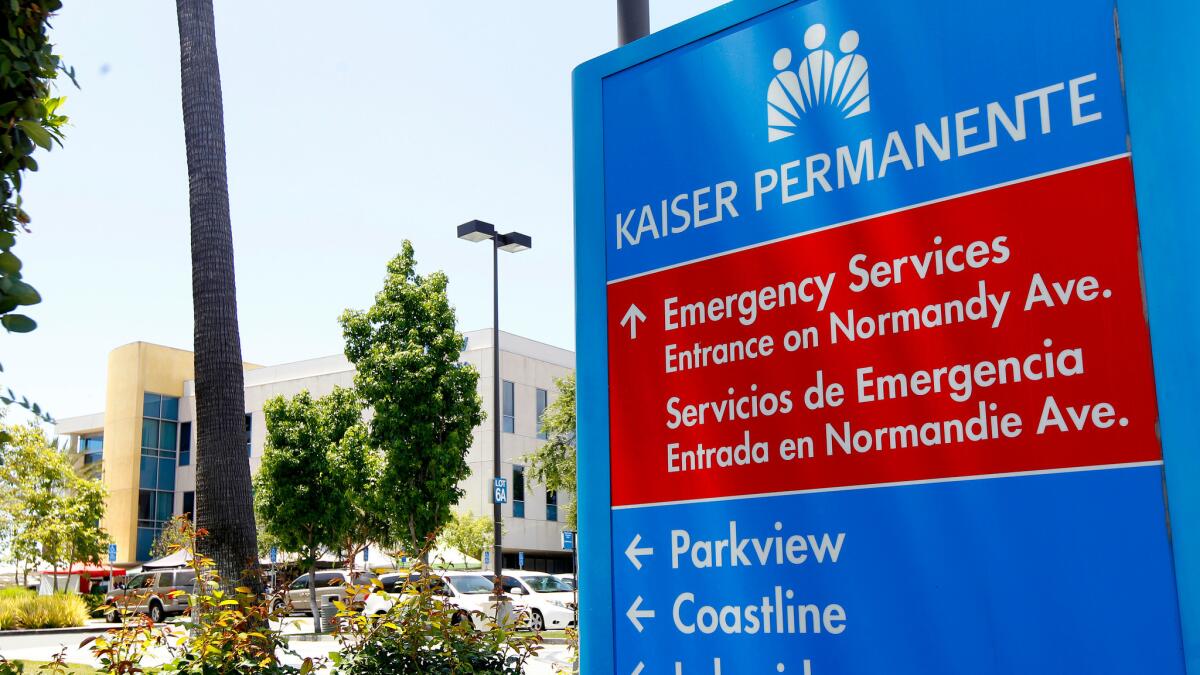Kaiser Permanente nurses are preparing to strike over wages and staffing

- Share via
About 1,300 nurses at Kaiser Permanente’s Los Angeles Medical Center are set to begin a four-day strike Thursday.
The nurses, members of the California Nurses Assn. and National Nurses United, are seeking a contract to improve staffing levels, wages and patient care.
The nurses contend that inadequate staffing levels at the hospital harm patient care and don’t allow for proper rest and meal breaks.
Kaiser issued a statement saying: “This strike is not about quality or adequate staffing levels. The quality of care our teams at LAMC provide has never been higher.”
See more of our top stories on Facebook >>
The union is trying to reach a collective bargaining agreement for improved wages and staffing. Nurses with the union went on a seven-day strike in March, after more than five months of negotiations.
Kaiser Permanente told The Times in March that its offer would put wages at par with other Southern California Kaiser Permanente hospitals.
However, conditions or wages haven’t improved,said Debra Grabelle, spokeswoman for the California Nurses Assn.
“The issue is about patient care. It’s not about the wages. It’s about the conditions,” she said. “Nurses are striking to call on Kaiser to invest appropriately and invest the money back into the hospital and care that they promised they were going to deliver.”
Kaiser Permanente said the union “gave us no meaningful feedback about our most recent proposal, and made no counter proposal to our wage offer” and instead scheduled the new strike.
For more business news, follow Amy Edelen on Twitter: @amyedelen
ALSO
How a Hollywood startup became Microsoft’s partner in the marijuana industry
Hiltzik: Elon Musk’s Tesla-SolarCity deal makes a lot of sense — but only for Elon Musk
Orange County home prices rise above their 2007 bubble-era peak
More to Read
Inside the business of entertainment
The Wide Shot brings you news, analysis and insights on everything from streaming wars to production — and what it all means for the future.
You may occasionally receive promotional content from the Los Angeles Times.










